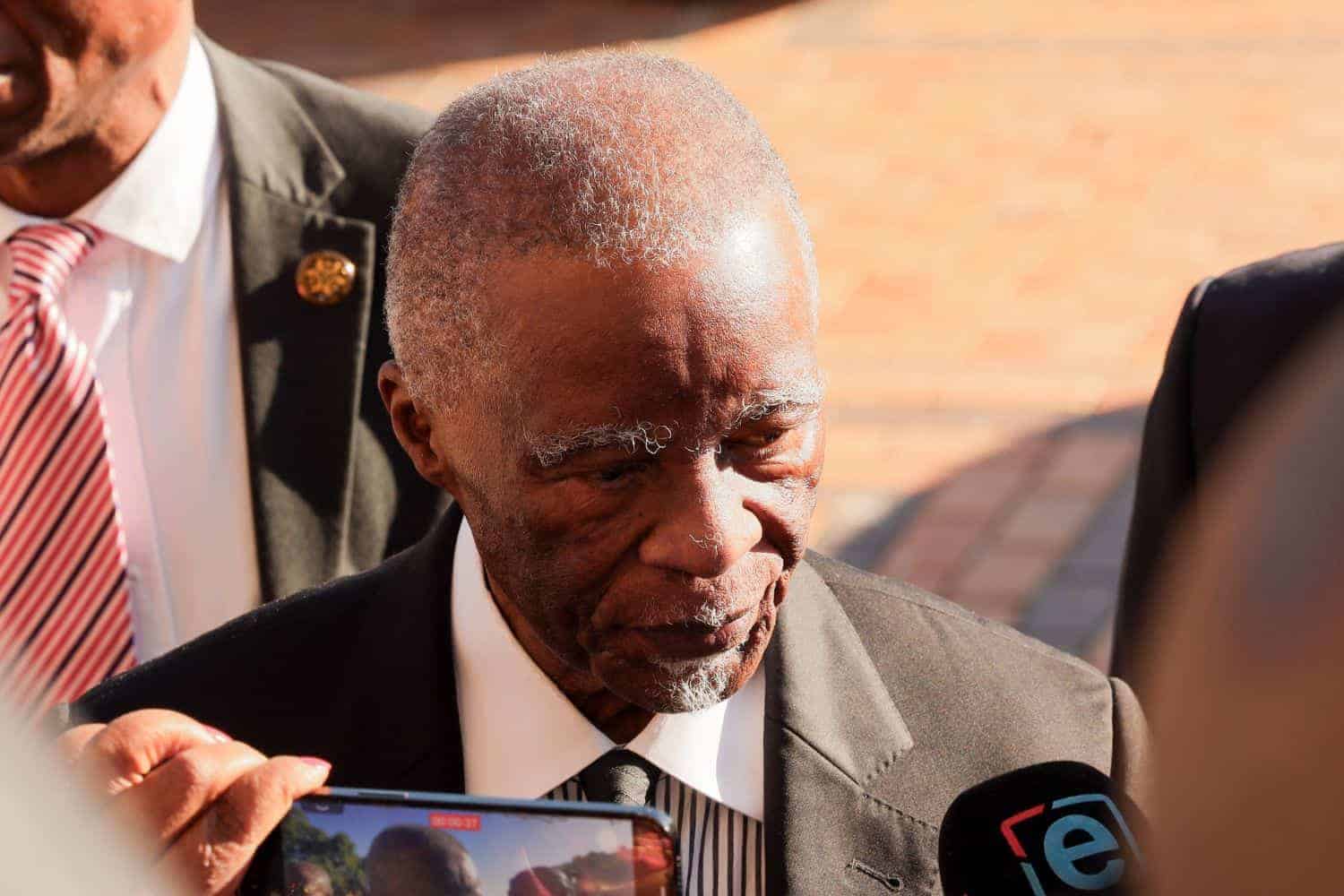The concept of Batho Pele (People First) was missing in most government departments, he said.

Former president Thabo Mbeki has delivered a scathing critique of the current government and its civil service.
Without ethics, the state cannot serve the public to its full potential, Mbeki said at a lecture at the University of South Africa at the weekend, paying tribute to the first chair of the public service commission, Stan Sangweni.
“South Africans can no longer pretend the public service is working fully for their benefit because it is not,” Mbeki said.
The concept of Batho Pele (People First) was missing in most government departments.
ALSO READ: SA’s health recovery underway after deep scars left by Mbeki’s Aids denial
“People don’t need handouts, but need to be empowered. From collapsing municipalities and rolling blackouts to empty taps and dysfunctional clinics, the state seems to be failing its people.”
Mbeki on ‘moral challenge’
The country is not only confronted by a technical challenge, but also a moral one, Mbeki said, “for a government that cannot be trusted cannot govern. Therefore, if leaders want citizens to believe again, they must show honesty and responsibility in their conduct”.
The former president highlighted the rise in private sector service organisations and campaigns, which emerged due to the government’s failure to deliver essential services, including education, health, and reliable electricity supply.
ALSO READ: Mbeki accused of trying to save his reputation by intervening in apartheid lawsuit – report
He cited the Solidarity movement’s plan to construct a university outside Pretoria as an example.
Cooperative Governance and Traditional Affairs Minister Velenkosini Hlabisa said political appointments have replaced merit.
“Accountability has become optional. Ordinary citizens, especially the poor, unfortunately, pay the heaviest price.”
Professionalising public service is key to the country’s growth, but this is also not the responsibility of the government alone, Hlabisa said.
“Public administration is a legacy between the state and the public. It is a state that invests in people.”
ALSO READ: Mbeki: ‘Africa must do what is in the best interests of Africa’
But South Africans have heard promises before, and they are now fed up, he said. The government of national unity can prioritise service delivery over corruption and “act as catalysts in ensuring transparency in public service”.
Support Local Journalism
Add The Citizen as a Preferred Source on Google and follow us on Google News to see more of our trusted reporting in Google News and Top Stories.






